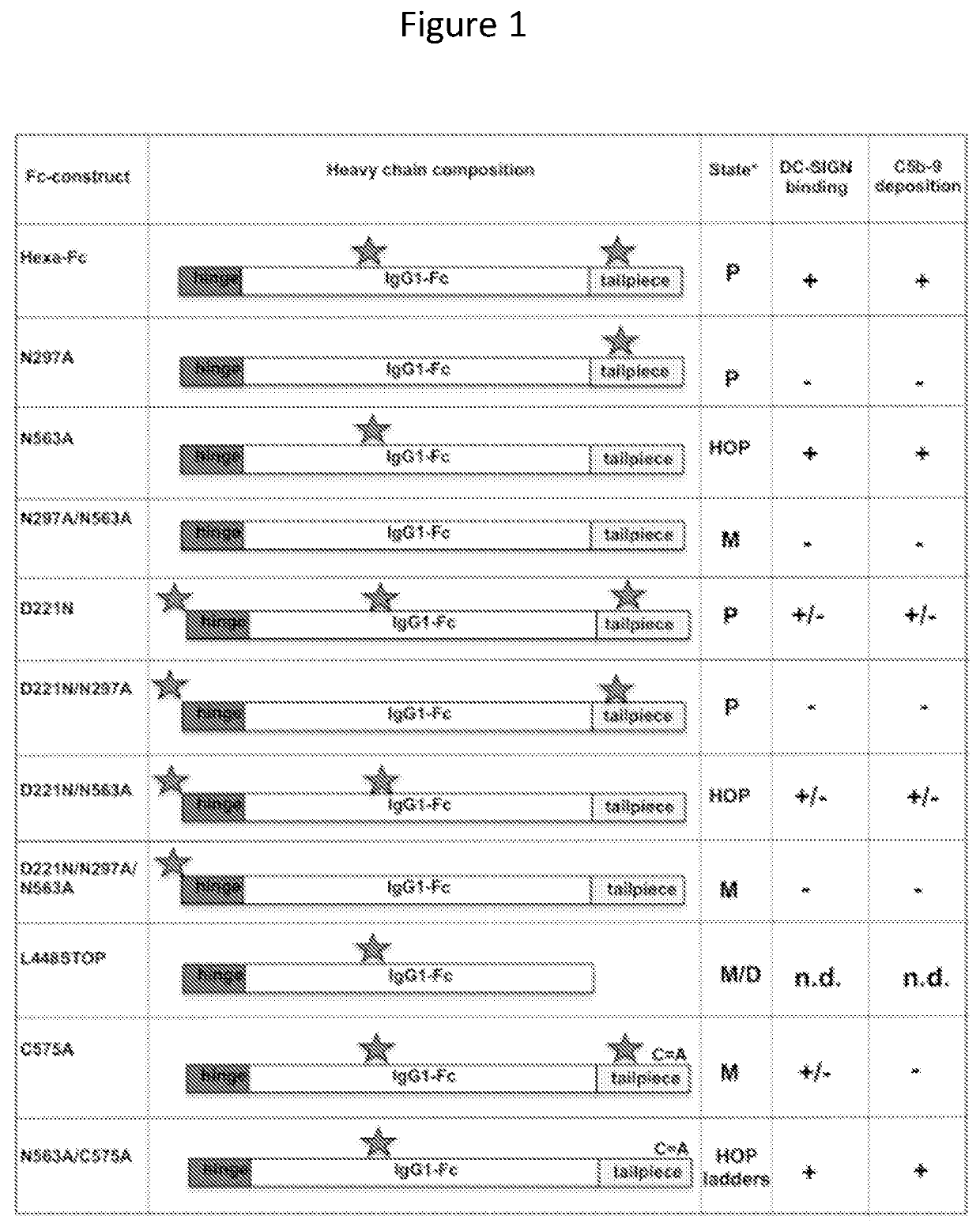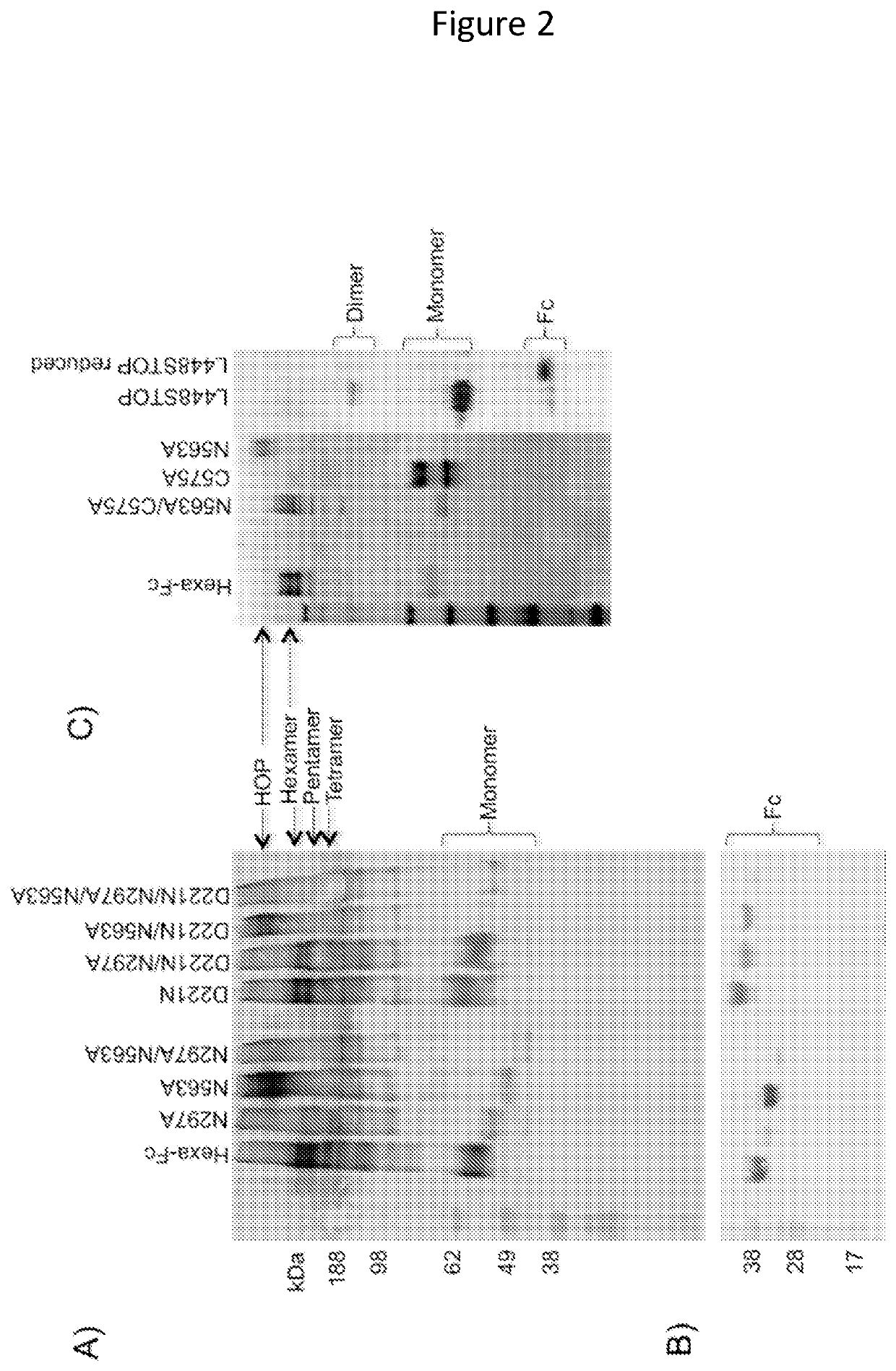Monomeric proteins and uses thereof
a monomer protein and protein technology, applied in the field of proteins, can solve the problems of raising safety issues, increasing costs, and high cost of ivig
- Summary
- Abstract
- Description
- Claims
- Application Information
AI Technical Summary
Benefits of technology
Problems solved by technology
Method used
Image
Examples
examples
Abstract
[0173]The human IgG1-Fc can be engineered into multimeric structures (hexa-Fcs) that bind to classical and non-classical Fc-receptors, including FcγRI, FcγRIIA, FcγRIIB, FcγRIIIA, FcRL5 and DC-SIGN with high avidity. Thus they may be attractive alternatives to antibodies and monomeric Fc proteins in applications where cross-linking of low-affinity receptors is mandatory for enhanced function and clinical utility. The critical influence of the unique N-linked glycan attached at Asn297 on the structure and function of the IgG1-Fc is well documented; however, whether this still applies to multimeric Fcs that bind with increased avidity is unknown. Hexa-Fc contains two N-linked sites, at Asn77 (equivalent to Asn297 in the Fc of IgG1) and Asn236 (equivalent to Asn563 in the tailpiece of IgM). We show that glycosylation at Asn297 is critical for functional interactions with Fc-receptors and complement, and that glycosylation at Asn563 is essential for controlling multimerisation. ...
PUM
| Property | Measurement | Unit |
|---|---|---|
| length | aaaaa | aaaaa |
| pH | aaaaa | aaaaa |
| pH | aaaaa | aaaaa |
Abstract
Description
Claims
Application Information
 Login to View More
Login to View More - R&D
- Intellectual Property
- Life Sciences
- Materials
- Tech Scout
- Unparalleled Data Quality
- Higher Quality Content
- 60% Fewer Hallucinations
Browse by: Latest US Patents, China's latest patents, Technical Efficacy Thesaurus, Application Domain, Technology Topic, Popular Technical Reports.
© 2025 PatSnap. All rights reserved.Legal|Privacy policy|Modern Slavery Act Transparency Statement|Sitemap|About US| Contact US: help@patsnap.com



